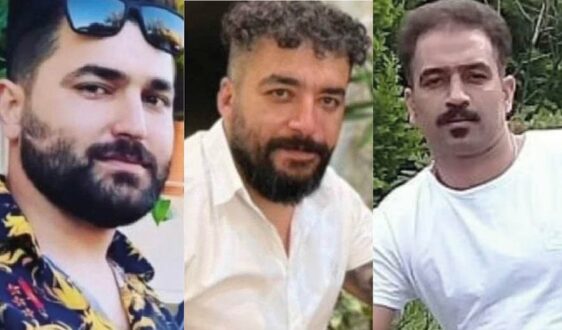RFL/RE – The family of executed protester Majid Kazemi says Iranian authorities have launched a campaign against it, suspending Kazemi’s father’s retirement benefits and firing his sister from her job just 10 days after his death sentence was carried out.
Mohammad Hashemi, Kazemi’s cousin, also revealed on Twitter on May 29 that Kazemi’s brothers, Mehdi and Hossein, remain in the custody of the Islamic republic’s security institutions after speaking out and pleading for a stay of the death penalty prior to his May 19 execution.
According to a correspondent for RFE/RL’s Radio Farda, Amir Kazemi, another cousin of Majid, confirmed that the family remains in the dark about the whereabouts and condition of Majid’s brothers. Amir Kazemi suggested that the arrest of these family members — his sister was also detained but later released — was an attempt to prevent a memorial service for Majid Kazemi.
Following the execution of Kazemi and two other young protesters, the government has ratcheted up pressure on their families. The executions sparked widespread public outrage, with rights groups and several governments criticizing the authorities for conducting hasty trials, forcing “confessions,” and denying the accused due process.
Majid Kazemi, Saleh Mirehashemi, and Saeed Yaqoubi were arrested for the alleged killing of two Basij paramilitary force members and a law enforcement officer during protests in November 2022.
However, based on a picture of the court verdict made public by the defendants’ families, the death sentences for the three were not issued for murder, but instead for “waging war against God,” a crime often applied to political dissidents.
The Basij members died at the height of widespread protests ignited by the death of 22-year-old Mahsa Amini in September 2022 while she was in police custody for allegedly breaking rules concerning the Islamic head scarf, known as a hijab. All three said they were innocent of the charges and were being made scapegoats for the deaths.
Saleh Mirehashemi’s mother released an audio file on social media three days after the executions saying her husband had been handcuffed by government forces and prevented from holding a ceremony honoring their son. Videos have also emerged showing security forces stationed around Saeed Yaqoubi’s house in recent nights.
Authorities warned for months after unrest broke out following Amini’s death that they would react harshly to any dissent. Lawmakers have pushed the judiciary to render the death penalty in trials for those arrested during the protests, which are seen as one of the biggest threats to the Islamic leadership since it took power in 1979.
So far, Iranian authorities have followed through with their threats by executing at least seven protesters, including the three on May 19.
Human rights activists say authorities in Iran are using the executions to try to instill fear in society rather than to combat crime.
 Shabtabnews In this dark night, I have lost my way – Arise from a corner, oh you the star of guidance.
Shabtabnews In this dark night, I have lost my way – Arise from a corner, oh you the star of guidance.



